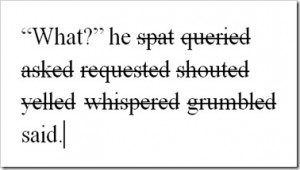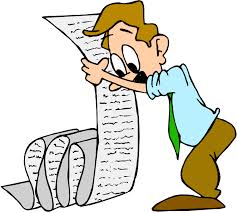 So writing a book is challenging, but producing an audiobook is a different kind of crazy altogether, trust and believe! Now that I’ve gone through the process, I’m going to give some perspective and tips on audiobook production from the author’s point-of-view. Some do’s and don’ts if you will. I’ve got ten tips in total, so this post will have a second part to it.
So writing a book is challenging, but producing an audiobook is a different kind of crazy altogether, trust and believe! Now that I’ve gone through the process, I’m going to give some perspective and tips on audiobook production from the author’s point-of-view. Some do’s and don’ts if you will. I’ve got ten tips in total, so this post will have a second part to it.
ALSO, I was pleasantly surprised to discover that the rules of storytelling tend to transcend mediums! You’ll find that many of the tips I give in this post and in the next apply not only to audiobook production but to prose writing as well. (And they’re rules we’ve been hearing for a long time as writers.) Rules that we try to stick to, but may not understand in real time, are all in your face (or in your ear, rather), when you produce an audiobook. TRUST ME. Also, listening to audiobooks is as good as using earplugs for sleeping. Both encourage sound sleep and charge us up!
So what are the first five tips out of ten? Well…
1. Do NOT use adverbs in your writing. Just. Don’t.
 This is an already hard and fast rule in writing period, but let me tell you: adverbs stick out like big fat sore sausage toes when you’re listening to an audiobook. Only a very few found their ways into my final draft (thank GOD) but those that made it sounded “meh” at best.
This is an already hard and fast rule in writing period, but let me tell you: adverbs stick out like big fat sore sausage toes when you’re listening to an audiobook. Only a very few found their ways into my final draft (thank GOD) but those that made it sounded “meh” at best.
When these Benedict Arnolds are hidden amongst really stark and lush description, it makes your writing sound lazy as all hell. Ugh. Just don’t do it. Eliminate ALL adverbs from your writing, no matter how harmless they seem on paper (or on your Kindle screen).
2. Try to limit dialogue tags as much as possible!
 Dialogue tags are not necessary for your ebook, and they are just downright superfluous in audiobook narration. Maybe my actor just kicks ass all around, but he made it pretty clear in his intonation when my characters said something “with annoyance” or “angrily”.
Dialogue tags are not necessary for your ebook, and they are just downright superfluous in audiobook narration. Maybe my actor just kicks ass all around, but he made it pretty clear in his intonation when my characters said something “with annoyance” or “angrily”.
He also invoked different voices, speech patterns, and accents that pegged each character as unique. So when he was reading the audiobook, pretty much every single dialogue tag that I used sounded utterly useless. The tags took away from the strength of the character’s words, and also just plain sounded redundant once my actor’s talent was applied.
3. Minimize your lists. Or, if a list of items or rules is necessary to your story, either keep it short, make it super compelling, OR tell your audiobook narrator to annotate it.
 Oh my God, totally learned this the hard way. There are sections in the printed and digital versions of Ghosts of Koa wherein I use flyers, lists, and headlines, and for the most part, they translate pretty well into the audiobook. HOWEVER, there is one section of my story wherein the main character is reading (to herself) a list of rules regarding immigration and citizenship policies.
Oh my God, totally learned this the hard way. There are sections in the printed and digital versions of Ghosts of Koa wherein I use flyers, lists, and headlines, and for the most part, they translate pretty well into the audiobook. HOWEVER, there is one section of my story wherein the main character is reading (to herself) a list of rules regarding immigration and citizenship policies.
While this was presented in a simple (and skip-over-able) document in the printed version of my book, it sounded super pedantic and boring when read in the audiobook version. This is not at all the fault of my actor, but more so due to my lack of foresight when writing the damned thing.
SO, if there is ever a section like that in your novel, I’d suggest you make a note to your audiobook narrator letting him know which parts of the list to read, OR, just do a brief re-write of that scene or section and send it to him.
4. Have some sort of cast list available, divided by major and minor characters.
 This is more of an organizational tip that will help your actor to become acclimated to the scope of your story. What you’ll find is that as your narrator gets more comfortable and spends more time with your characters, he will set a pace, tone, and personality for each that will remain consistent throughout the story.
This is more of an organizational tip that will help your actor to become acclimated to the scope of your story. What you’ll find is that as your narrator gets more comfortable and spends more time with your characters, he will set a pace, tone, and personality for each that will remain consistent throughout the story.
You can actually help him do this (while also putting your interpretation on how you envision your characters) by giving him a cast list. Here’s a mini (and improved) example from the casting document that I sent Michael:
EZEKIEL D’JIHARA ANON – MAJOR PROTAGONIST – Also known as “Zeika” or “Zeeky”. 16-yr-old from the Bronx. Spunky, witty, spirited.
And so on. How you do this is up to you, but giving your actor some direction is definitely helpful for getting the kind of performance you’re looking for!
5. If there are characters speaking other languages in your book, BE VERY CLEAR as to how those words are pronounced! Same thing with names, people, and places you make up for your story.
 Okay, this is especially for sci-fi & fantasy folk because we spend a lot of time creating and destroying worlds.
Okay, this is especially for sci-fi & fantasy folk because we spend a lot of time creating and destroying worlds.
Whether you’re using a language that already exists or you’ve made up your own, PLEASE… let your actor know how to pronounce anything that might be foreign to him (or to anyone else). In fact, as you’re editing your final draft (before you even consider hiring an audiobook producer), I suggest you make a little guidebook with the pronunciations of all languages, new places, characters’ names, monster names, and more.
Even better? Record the pronunciation of these things so that your actor can listen to them and integrate them into his psyche.
Trust me: following these tips will really help improve the overall quality of your audiobook, so I really hope you consider them!
So what about you? Have you produced an audiobook and learned a lesson from it that you’d like to share? What tips am I missing? Post your comments below!
Also, stay tuned for the next installment of tips from me on audiobook production from the writer’s POV. But of course, in the meantime…
Keep it indie!
<3 Colby


Trackbacks/Pingbacks